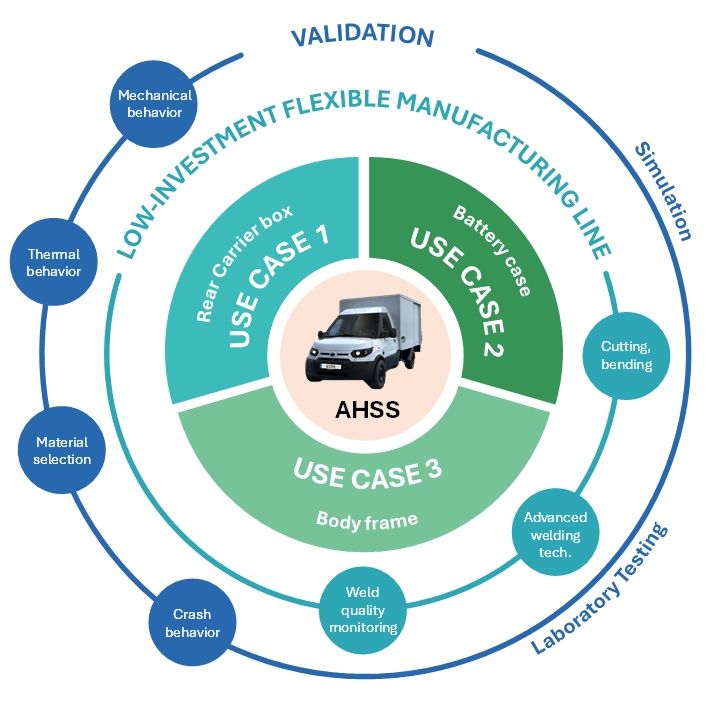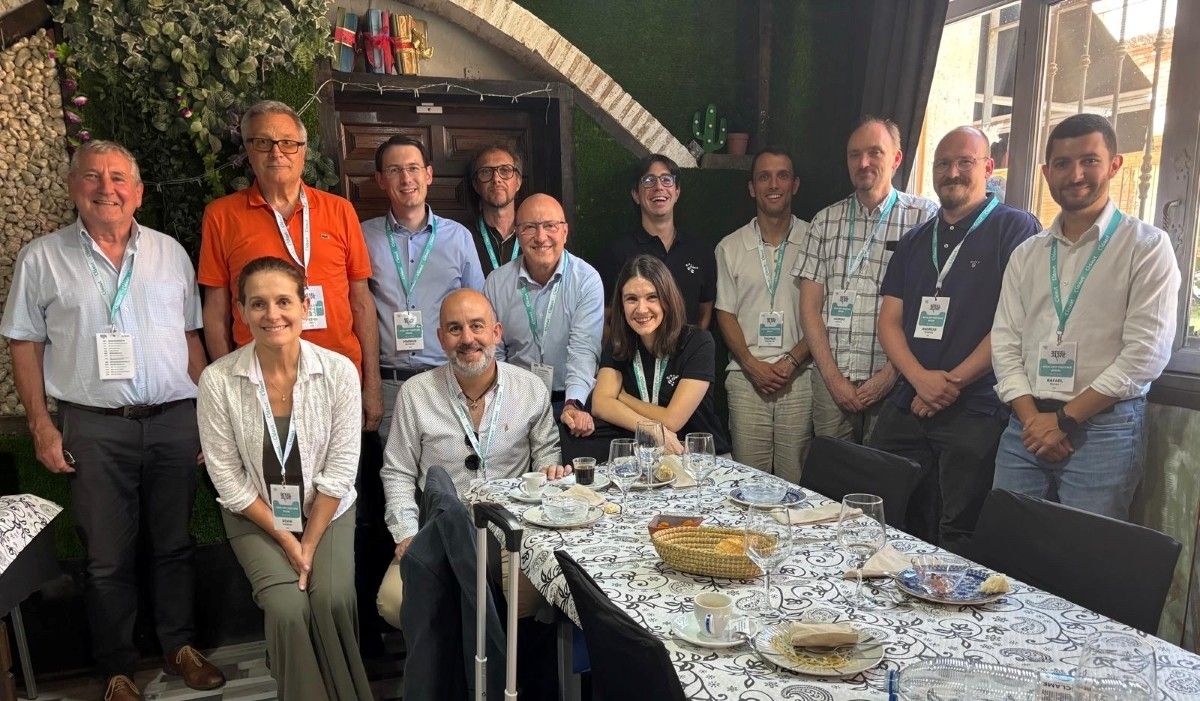Steel has long been the preferred material in the automotive industry. However, recent advancements in materials science, combined with the increasing push for lighter vehicles due to the shift toward electromobility, have led to a greater adoption of aluminium and composite materials. In response to this trend and the growing expenses linked to these alternative materials, CIDAUT, as the coordinator of the STEEL-ALIVE consortium, is tackling the challenge of reclaiming steel’s dominant position within the automotive sector.
In general terms, STEEL-ALIVE is an initiative funded by the European Commission under the Coal and Steel Research Fund program, which aims to boost the manufacturing of Light Commercial Vehicles (LCVs) using steel by optimising the production process. Instead of conventional stamping or giga-casting methods, the project starts with standard tubes and sheets of Advanced High-Strength Steels (AHSS), which will be developed over the project and shaped through cutting, bending and welding processes. The specific applications that will be used as demonstrators are: (i) the battery case, (ii) the rear carrier box, and (iii) the body frame.

To achieve this, the strategy focuses on exploring novel steel grades and advanced welding technique, and the development of new quality control methodologies integrated with artificial intelligence. The project’s quantitative objectives are to reduce the initial investment by 80%, decrease energy consumption and the CO2 footprint during manufacturing by 70%, and cut production costs by 30%. This approach not only promotes advanced and sustainable manufacturing but also reinforces the economic viability of steel in the sector.
All this work is supported under Grant Agreement number 101216680.
